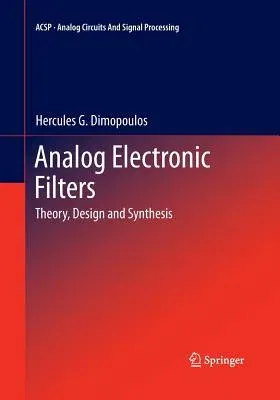Hercules G Dimopoulos
(Author)Analog Electronic Filters: Theory, Design and Synthesis (Softcover Reprint of the Original 1st 2012)Paperback - Softcover Reprint of the Original 1st 2012, 23 August 2016

Qty
1
Turbo
Ships in 2 - 3 days
In Stock
Free Delivery
Cash on Delivery
15 Days
Free Returns
Secure Checkout
Part of Series
Analog Circuits and Signal Processing
Print Length
498 pages
Language
English
Publisher
Springer
Date Published
23 Aug 2016
ISBN-10
9401777721
ISBN-13
9789401777728
Description
Product Details
Author:
Book Edition:
Softcover Reprint of the Original 1st 2012
Book Format:
Paperback
Country of Origin:
NL
Date Published:
23 August 2016
Dimensions:
25.4 x
17.78 x
2.62 cm
ISBN-10:
9401777721
ISBN-13:
9789401777728
Language:
English
Location:
Dordrecht
Pages:
498
Publisher:
Weight:
879.97 gm

